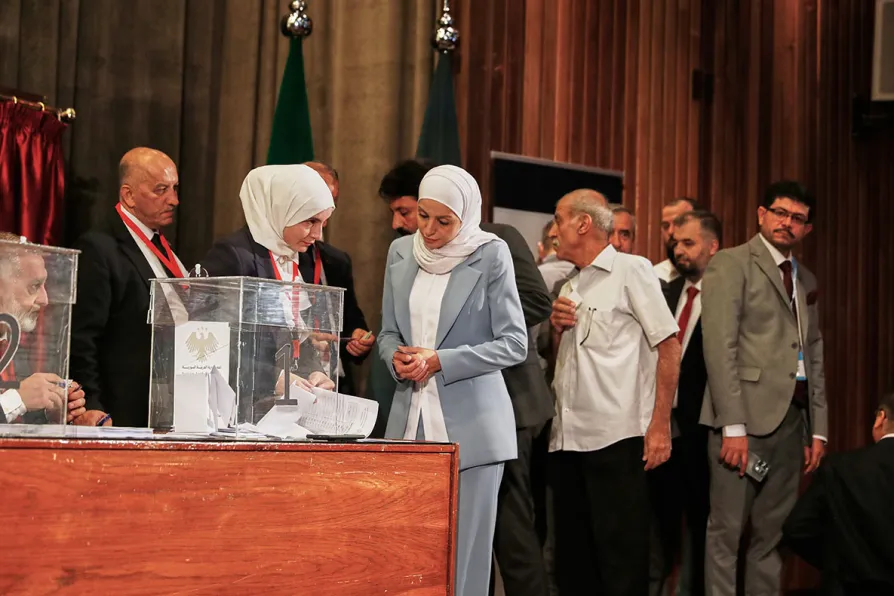
 Syrian electoral college members line up to cast their ballots in a parliamentary election at a polling station in Damascus, Syria, October 5, 2025
Syrian electoral college members line up to cast their ballots in a parliamentary election at a polling station in Damascus, Syria, October 5, 2025
SYRIAN authorities have announced the results of its parliamentary elections amid concerns that they lacked inclusivity and legitimacy.
The elections to the revamped People’s Assembly were the first exercise in voting since the overthrow of president Bashar al-Assad last December, although Syrians living in Druze and Kurdish areas were not given the opportunity to participate.
Sunday’s vote saw around 6,000 members of regional electoral colleges choose candidates from preapproved lists, part of a process to elect nearly two-thirds of the new 210-seat assembly.
President Ahmed al-Sharaa will later select the remaining third.
The authorities resorted to an indirect voting system rather than universal suffrage, citing a lack of reliable population data following the war, which killed hundreds of thousands of Syrians and displaced millions.
Electoral commission spokesman Nawar Najmeh told a press conference on Monday night that only 4 per cent of the 119 members selected in the indirect vote were women and only two Christians were among the winners, sparking concerns about inclusivity and fairness.
The Agence France-Presse news agency quoted Mr Najmeh as saying that the number of women in the parliament was “not proportionate to the status of women in Syrian society and their role in political, economic and social life.”
He also acknowledged that the representation of Christians was “weak, considering the proportion of Christians in Syria.”
Syrian authorities said the vote had been postponed for 21 seats in areas outside government control, including Kurdish-held parts of Syria’s north and north-east, as well as the province of Sweida, controlled by the Druze minority, because of security concerns.
Mr Najmeh said that the president’s choice would perhaps “compensate” for the under-representation of some elements of society.
Political and human rights activist Nour al-Jandali, who was selected for a seat in the central city of Homs, said the new legislature faced the challenge of re-establishing “a state built on freedom, citizenship and justice.
“Women must have a real and active role in drafting public policy,” she added.










